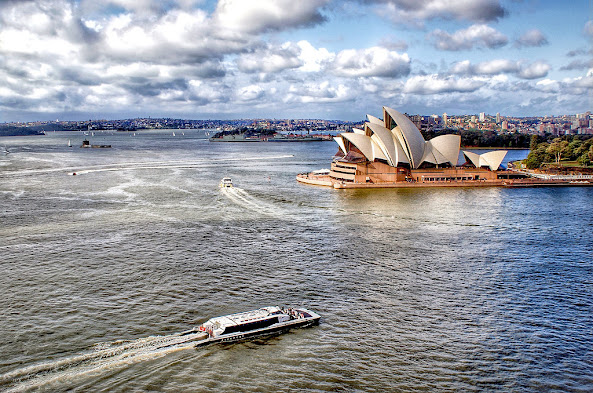The federal government is inviting thousands of Canadians to apply to sponsor their parents and grandparents starting Oct. 10 — but many say its recent approach is leaving qualified Canadians behind, and could be making the immigration department vulnerable to ineligible applications.
Under the parents and grandparents program (PGP), the department only invites people to apply if they've formally submitted an interest in entering their names into the lottery system.
The problem for many, is the immigration department has not accepted new interest-to-sponsor (ITS) forms since 2020. Usually, there's an opportunity to do that each year.
"It is good for those who were lucky enough to get their names into the hats, basically in 2020," said Jatin Shory, a refugee and immigration lawyer in Calgary.
"But our biggest issue definitely, definitely, definitely comes for those who would qualify now if a brand new intake cycle opened up, but who are now just being left behind."
Harpreet Singh is one of those people. The 29-year-old living in Langley, B.C., didn't express interest in 2020 because his income was a little short.
He became financially eligible less than three months after the department stopped accepting ITS forms. That month, the federal government said there would be another opportunity to sign up in 2021, so he wasn't too worried.
But years later, he's still waiting for a fair chance to bring his mom from the United Kingdom to Canada.
"I listened to what the government was saying and now it's like, oh, OK, the pool is closed and I'm frozen out and I don't really know what's going on," said Singh.
Shory says out of desperation, some of his clients are filing applications for their families under humanitarian and compassionate considerations, which he says is risky, stressful and much more expensive.
Risk of Ineligible Applications
Between Oct. 10-23, Immigration, Refugees and Citizenship Canada (IRCC) says it will invite 24,000 eligible Canadians to apply to reunite with their families, with the goal of receiving up to 15,000 complete applications.
People across the country have been raising concerns about the PGP for years. At least two petitions have been filed in the House of Commons to address the shortcomings of the immigration system.
Singh launched one of those petitions last year.
His biggest concern, raised in his petition to former immigration minister Sean Fraser, is that this approach could leave the immigration department vulnerable to ineligible applications.
"There's people in the pool who weren't actually eligible in 2020, but they submitted anyway, and now they continue to get chances to sponsor their parents because they might be eligible now," said Singh.
That's because IRCC only assesses people's income from the three years previous to their application being considered, not when they entered the pool.
"What are they doing to counteract that?"
Immigration lawyer Shory says that's a real risk, and it could explain why IRCC is only accepting up to 15,000 complete applications.
"If you can issue 24,000 invitations, why are you not accepting up to 24,000 [applications]? I believe the idea is not all 24,000 will qualify," said Shory.
"I wonder if the government is going to go back and say, 'Well listen, you didn't qualify in 2020, so therefore we're not going to qualify you for this, even though you may qualify now.'"
IRCC Received 200,000 Entries in 2020
Department spokesperson Isabelle Dubois says IRCC is catching up on a list of 200,000 potential sponsors who expressed interest in 2020. Approximately 132,000 people remain in the pool.
"Given the volume of interest-to-sponsor forms received in 2020 that remain, IRCC will continue to use this pool of submissions for the 2023 intake," said Dubois in an emailed statement.
She also confirmed that IRCC will only be assessing the income of potential sponsors for the 2020-2022 tax years.
"No potential sponsor randomly selected from the 2020 pool, who does not meet the necessary eligibility requirements, is eligible for parent and grandparent sponsorship," she said.
"IRCC takes program integrity very seriously and is committed to ensuring our programs are fair and equally accessible."
Five-Year Wait to Process Application
Vikramjit Brar says he wants IRCC to catch up on its backlog before accepting more applications.
According to the most recent data, 802,600 immigrant applications are backlogged — including 54 per cent of permanent residency applications, though Dubois says IRCC has been making good progress with processing applications.
Still, Brar has been waiting five years for IRCC to process his application to sponsor his parents.
The Airdrie, Alta., resident says the worst part of the delay is the emotional distress. It's weighing on his relationship with his parents, and affecting the mental health of them all, he says.
"This is frustrating. This is disappointing. Sometimes I don't pick up their call because I can't give them false hope," said Brar.
"Each year, [the government is] taking hundreds and thousands of applications. They're getting a lot of money from people... But there's no service, there's no outcome."
Brar's next and final step is to hire a lawyer to file a writ of mandamus — an order for government officials to fulfil their duties and process applications — with a quoted legal cost of up to $10,000.





Comments
Post a Comment